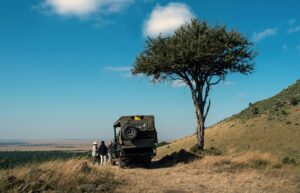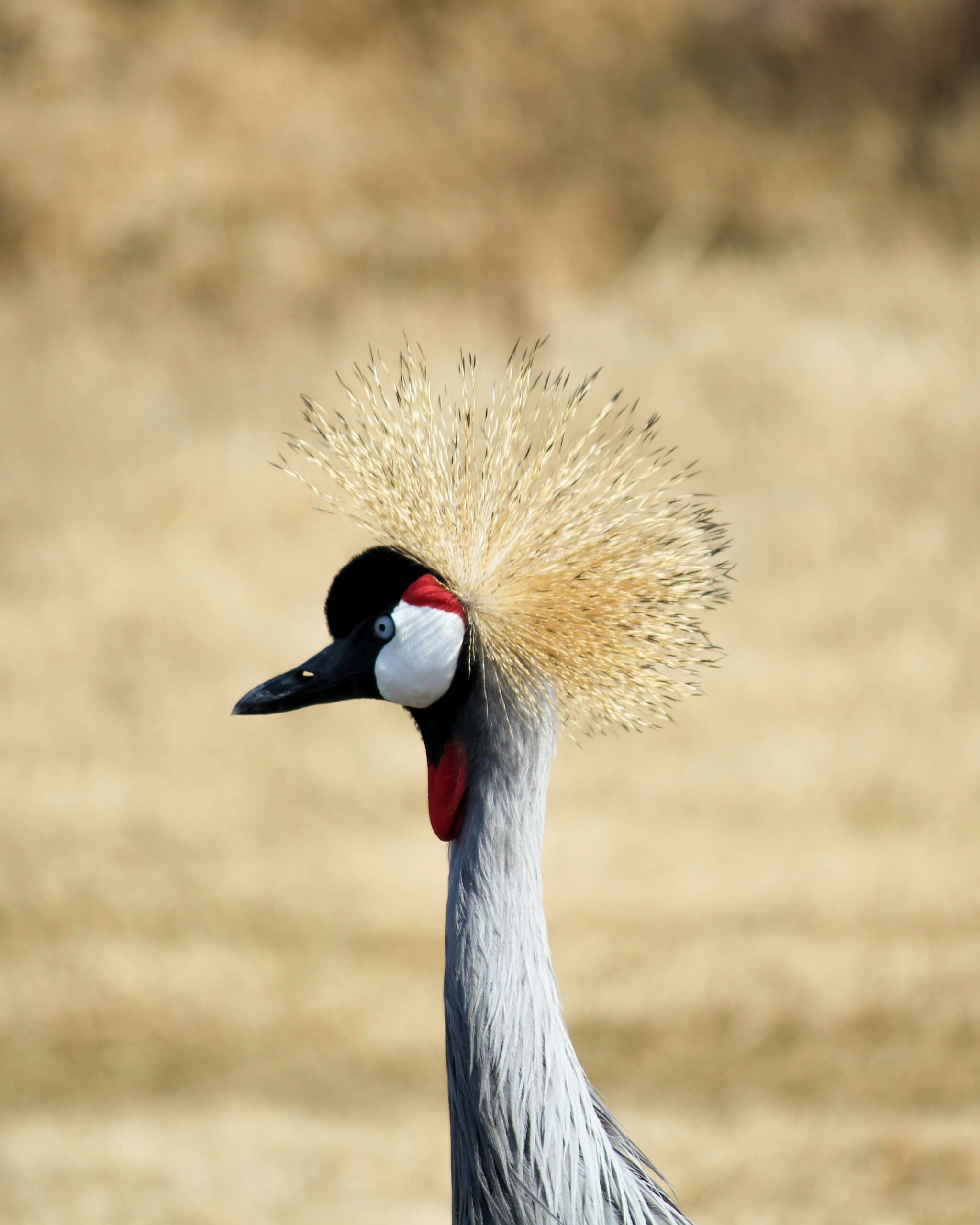Uganda, the “Pearl of Africa,” is a land of breathtaking beauty, where lush rainforests meet sprawling savannas and majestic mountains rise above shimmering lakes. This remarkable biodiversity makes it a prime destination for ecotourism and conservation-focused safaris. These safaris offer more than just incredible wildlife encounters; they provide a unique opportunity to actively participate in preserving Uganda’s natural heritage for generations to come. This article explores the concept of responsible safaris in Uganda, highlighting key destinations, ongoing conservation initiatives, and practical ways travelers can contribute to protecting this extraordinary ecosystem.
What is a Responsible Safari? More Than Just a Trip:
A responsible safari goes beyond traditional wildlife viewing. It’s a conscious travel experience that prioritizes conservation, community engagement, and minimizing environmental impact. These safaris often incorporate:
- Education: Learning about the complex challenges facing Uganda’s wildlife and ecosystems, and understanding the vital work being done to protect them.
- Active Participation: Opportunities to get involved in conservation efforts, such as wildlife monitoring, anti-poaching patrols (where appropriate and guided), or habitat restoration projects.
- Sustainable Practices: Supporting eco-friendly lodges and tour operators that adhere to responsible tourism principles, minimizing their footprint and maximizing benefits for local communities.

Key Destinations for Responsible Safaris in Uganda: Where Conservation Comes Alive
Uganda’s diverse national parks offer a range of responsible safari experiences:
- Bwindi Impenetrable National Park: Home of the Mountain Gorillas:
Bwindi is a UNESCO World Heritage Site and a sanctuary for nearly half of the world’s remaining mountain gorillas. Conservation here is paramount, focusing on protecting these endangered primates from poaching, habitat loss, and disease.
- Conservation Focus: The Bwindi Gorilla Conservation Project plays a crucial role in monitoring gorilla families, conducting research, and working with local communities to ensure the long-term survival of these gentle giants.
- Community Engagement: Bwindi supports local communities through tourism revenue sharing, funding vital projects in healthcare, education, and sustainable development. Visitors have the chance to learn about and contribute to these initiatives, fostering a deeper understanding of the interconnectedness between conservation and community well-being.
- Responsible Tourism Activities: Gorilla trekking is the highlight of a visit to Bwindi, an unforgettable experience that allows you to observe these magnificent creatures in their natural habitat. Beyond trekking, visitors can participate in guided nature walks, learn about local Batwa pygmy communities, and support community-owned craft businesses.
- Queen Elizabeth National Park: A Tapestry of Ecosystems:
Queen Elizabeth National Park boasts a stunning variety of habitats, from classic African savannas to lush wetlands, supporting a rich diversity of wildlife, including elephants, lions, leopards, chimpanzees, and a plethora of bird species.
- Conservation Focus: Conservation efforts here are multifaceted, focusing on protecting key species, managing human-wildlife conflict, and preserving the park’s diverse ecosystems.
- Chimpanzee Tracking in Kyambura Gorge: Within the park, Kyambura Gorge is a critical site for chimpanzee conservation. The Kyambura Gorge Chimpanzee Project works tirelessly to protect these primates and their fragile habitat.
- Responsible Tourism Activities: Visitors can participate in chimpanzee tracking in Kyambura Gorge, join guided game drives to see lions, elephants, and other wildlife, and explore the park’s varied landscapes. Boat safaris on the Kazinga Channel offer exceptional wildlife viewing opportunities, allowing you to observe hippos, crocodiles, and water birds in their natural environment.
- Murchison Falls National Park: Where the Nile Carves its Path:
Murchison Falls National Park is Uganda’s largest national park, bisected by the mighty Nile River. The park is known for its dramatic Murchison Falls, where the Nile plunges through a narrow gorge, and its diverse wildlife.
- Conservation Focus: The park is a focal point for rhino reintroduction efforts. The nearby Ziwa Rhino Sanctuary plays a crucial role in breeding and protecting white rhinos, with the goal of reintroducing them to Murchison Falls National Park. Conservation efforts also focus on protecting the Nile River ecosystem, preserving fish populations, maintaining water quality, and safeguarding riverine habitats.
- Responsible Tourism Activities: Visitors can participate in rhino tracking at Ziwa Rhino Sanctuary, take boat trips on the Nile to the base of Murchison Falls, and join game drives to see elephants, giraffes, lions, and other wildlife. Opportunities may also exist to engage in wildlife research and conservation activities within the park.
Other Notable Destinations:
- Kibale Forest National Park: Known as the primate capital of the world, Kibale is home to a high concentration of chimpanzees and other primates. Responsible tourism activities include chimpanzee tracking and guided forest walks.
- Mgahinga Gorilla National Park: Sharing borders with Rwanda and the Democratic Republic of Congo, Mgahinga is home to mountain gorillas and golden monkeys. Gorilla and golden monkey trekking are the primary activities, contributing to conservation efforts in this tri-national park.
Key Conservation Initiatives in Uganda: Making a Difference
Several vital conservation initiatives are underway in Uganda, addressing the complex challenges facing the country’s wildlife and ecosystems:
- Anti-Poaching Efforts: Poaching remains a significant threat to Uganda’s wildlife. Dedicated rangers and conservation organizations work tirelessly to combat poaching through patrols, intelligence gathering, community outreach programs, and law enforcement. Responsible tourists can support these efforts by donating to anti-poaching initiatives and raising awareness about the issue.
- Habitat Restoration: Habitat loss due to deforestation, agriculture, and human encroachment is a major concern. Reforestation projects, wetland restoration, and sustainable land use practices are crucial for protecting critical ecosystems. Visitors can participate in tree planting initiatives and support organizations working to restore degraded habitats.
- Community-Based Conservation: Engaging local communities in conservation efforts is essential for long-term success. Many projects in Uganda prioritize community benefits, ensuring that local people have a vested interest in protecting wildlife and natural resources. Tourists can support these initiatives by visiting community projects, purchasing locally made crafts, and participating in cultural experiences.
- Wildlife Research and Monitoring: Scientific research is essential for understanding wildlife populations, behavior, and ecological needs. Conservation organizations conduct studies on various species, gathering data that informs conservation strategies. Opportunities may exist for tourists to join research teams, assisting with data collection and learning about the scientific aspects of conservation.
How to Participate in Responsible Safaris: Making Your Trip Meaningful
Every traveler has the power to make a difference. Here are some practical steps you can take to ensure your safari in Uganda is responsible and contributes to conservation:
- Engage in Educational Activities: Take advantage of opportunities to learn about conservation challenges and efforts. Participate in guided nature walks, visit community projects, and ask questions about the local ecosystems and wildlife.
- Support Local Communities: Purchase locally made crafts, dine at local restaurants, and engage with community members. Your spending can directly benefit the people living near the parks and provide them with economic incentives to protect wildlife.
- Minimize Your Environmental Footprint: Practice responsible travel habits by reducing waste, using eco-friendly products, and respecting local customs and traditions. Choose accommodations that prioritize sustainability.
- Respect Wildlife: Maintain a safe and respectful distance from animals, follow your guide’s instructions, and never attempt to feed or disturb wildlife.
- Spread the Word: Share your experiences and educate others about the importance of responsible tourism and conservation. Your voice can inspire others to make a difference.
A Journey with Purpose: Leaving a Positive Footprint
A responsible safari in Uganda is more than just a vacation; it’s a journey with purpose. It’s an opportunity to connect with the heart of Africa, witness its incredible biodiversity, and contribute to its preservation. By making conscious choices and engaging in responsible tourism practices, you can leave a positive footprint on Uganda’s landscapes and help protect its wildlife for generations to come. Embrace the opportunity to be a part of something bigger, and discover the magic of a safari that truly makes a difference.


